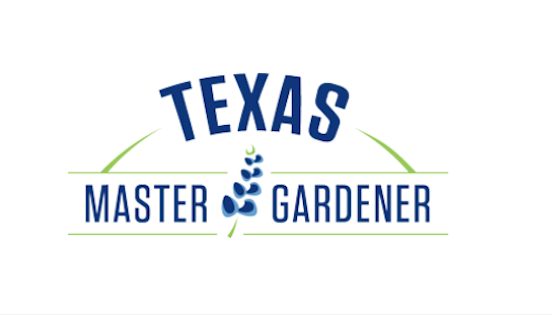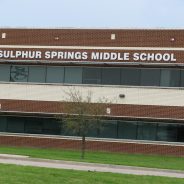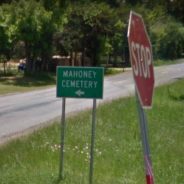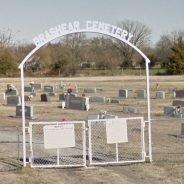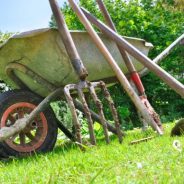Trump DOJ Lawsuit Ends In-State Tuition For Illegal Aliens
June 6, 2025 – A longstanding Texas law allowing certain undocumented immigrants to receive in-state tuition at public colleges has come under legal fire. The federal Department of Justice recently filed a lawsuit challenging the policy, arguing it violates federal law and the U.S. Constitution’s Supremacy Clause. Texas Attorney General Ken Paxton quickly settled the suit, agreeing to end the tuition program.
“Ending this discriminatory and un-American provision is a major victory for Texas.” – Ken Paxton
Since 2001, Texas has permitted undocumented students to qualify for in-state tuition if they attended Texas high schools and lived in the state for a defined period. This made Texas one of the first states to adopt such a policy. The tuition rate difference is substantial, with in-state rates significantly lower than what out-of-state U.S. citizens pay. During his 2012 presidential run, then-Governor Rick Perry vigorously defended the policy, calling critics “heartless.”
The lawsuit pointed to federal statutes that prohibit states from providing postsecondary education benefits based on residency to undocumented immigrants unless the same benefits are offered to all U.S. citizens, regardless of state residency. The DOJ argued, and Paxton concurred, that Texas’s policy conflicted with this federal provision.
Meanwhile, efforts to repeal the law through legislation also fell short. A bill authored by Sen. Mayes Middleton (R-Galveston) aimed to eliminate the program and restrict financial aid access to undocumented students. Although the measure was scheduled for consideration, it was never brought to a vote.

Increase In Toll Rates Coming July 1
June 4, 2025 – Drivers in North Texas will soon see a modest increase in toll rates starting July 1, as part of the North Texas Tollway Authority’s (NTTA) routine adjustment schedule. The cost per mile for drivers using a TollTag will rise from 21 cents to 22 cents—a slight but noticeable change for regular commuters. Those without a TollTag and instead relying on the ZipCash system will continue to pay roughly double the TollTag rate.

The NTTA adjusts toll rates every two years in accordance with a policy aimed at meeting the region’s long-term transportation and infrastructure needs. Officials say the increase is necessary to help maintain and expand toll roads, improve traffic flow, and ensure the safety and efficiency of the existing network.
Additionally, part of the revenue from this increase will go toward servicing approximately $8.8 billion in toll-related debt. These bonds have funded numerous construction and maintenance projects across the North Texas region.
While the adjustment may not significantly impact occasional drivers, it could add up for daily commuters. NTTA officials continue to encourage drivers to sign up for a TollTag to receive the lowest possible rates and streamline toll payments. As the region’s population and road use grow, toll adjustments are expected to remain a regular part of long-term planning.
Governor Abbott Announces Over $481 Million Awarded To Texas Teachers
June 4, 2025 – Austin, Texas – Governor Greg Abbott today announced that more than $481 million in Teacher Incentive Allotment (TIA) funds were awarded for over 42,000 designated Texas teachers during the 2024-25 school year.
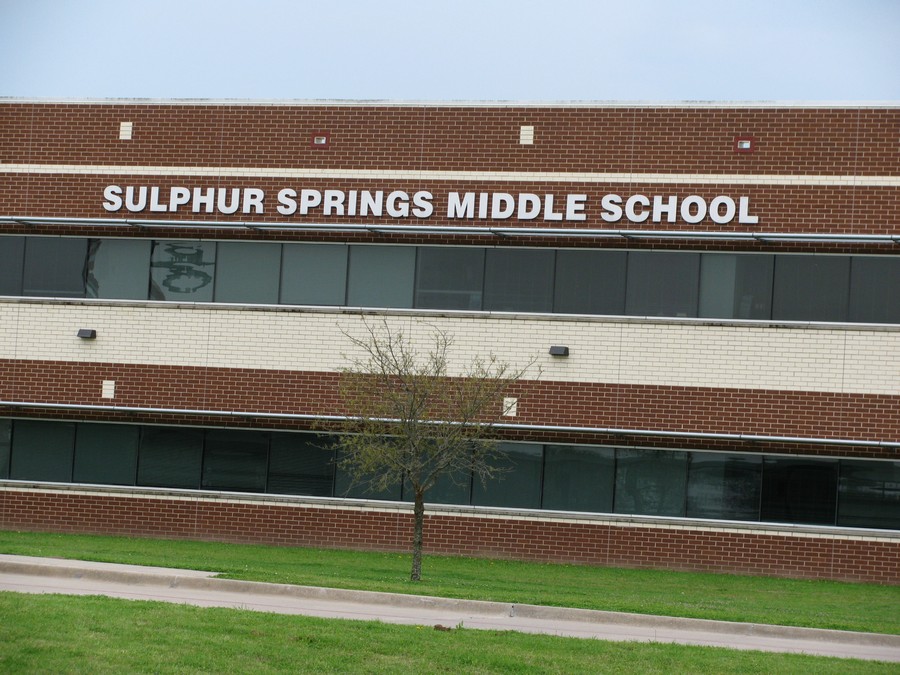
“Teachers play a key role in the success of Texas students and our great state,” said Governor Abbott. “With this over $481 million in merit pay, Texas is awarding thousands of teachers from every corner of our state with the pay raise they deserve—putting them on a path to earning a six-figure salary. And soon, Texas will invest even more in teachers, providing permanent pay raises for experienced classroom teachers. With empowered parents, exemplary teachers, and exceptional academics, Texas is on a path to be No. 1 in educating our children.”
Since 2019, TIA has awarded over $1 billion to highly effective and impactful teachers across the state. Designed to keep Texas’ best educators in the classroom, TIA provides a clear pathway for teachers to earn a six-figure salary. Participating school systems saw an impact on recruitment and retention, particularly those that have built or expanded their designation systems to include all teaching assignments, like fine arts, special education and career and technology courses. An internal analysis from the Texas Education Agency (TEA) found that teachers who received a TIA designation were retained nine percentage points higher than their non-designated peers.
School systems participating in TIA determine teacher designations using data from classroom observations and student academic growth outcomes. Designated teachers who remain in classroom teaching positions generate annual funding for teacher compensation. Districts may include all teachers in the first year of their local designation system, or they may choose to start with a smaller number of eligible teaching assignments and expand their system over time.
Historically, TIA designations fell into three groups: Recognized, Exemplary, and Master. Under House Bill 2, a new designation band – Acknowledged – will be established, making more teachers eligible for the allotment. The legislation will also increase the allotment amount for Recognized, Exemplary, and Master designations.
Meet the 2025 Hopkins County Dairy Festival Queen Contestants
June 4, 2025 – Meet half of your 2025 Hopkins County Dairy Festival Queen Contestants with this first of two presentations! KSST”s John Mark Dempsey sat down with 2025 Dairy Fest Contestants #1 Emma Boatman, #2 Amerson Boles, #3 Claire Jalufka, and contestant #4 Lucy McKenzie. Learn about these lovely young ladies and find out what each one has to offer the community. Each one would make a great Dairy Festival Queen! John Mark will interview the other 2025 Dairy Festival Queen Contestants later this week. Stay tuned!

CHRISTUS Health: Protect Your Skin This Summer Season
June 3, 2025 – (EAST TEXAS) – As temperatures rise and days grow longer, proper skin care is stepping into the CHRISTUS Health spotlight. From sunburn and dehydration to breakouts, premature aging and dangerous skin conditions, the warmer months can take a serious toll if you’re not prepared.
Dr. Laura O’Halloran, a plastic surgeon with CHRISTUS Trinity Clinic, said one of the most effective ways to prevent skin damage is by using sunscreen. However, most people don’t use enough or reapply often enough, she said
“You really need to reapply sunscreen every two hours and probably more often,” she said. “Even the best sunscreen can lose its effectiveness over time, making you more vulnerable to damage, sunburn and long-term risks like premature aging and skin cancer.”
The two most prevalent ultraviolet (UV) rays the skin absorbs are UVA and UVB. Excessive amounts of either can lead to skin aging, eye damage, sunburn and certain skin cancers.
This year, more than 100,000 new cases of melanoma, the most serious skin cancer, are expected in the U.S., adding to the 1.5 million current cases, according to the National Cancer Institute.
“Both types of UV rays can induce changes in the actual DNA of your skin, which is why it’s so vital to protect it,” O’Halloran said.
If you notice any enlarging moles, new moles or bleeding moles, seek medical attention, she said.
Along with consistent use of sunscreen, staying hydrated, avoiding peak sun hours and wearing long-sleeved clothes and hats can help reduce sun exposure.
“For every person, the amount of time you can stay in the sun without damage can really vary,” O’Halloran said. “But everyone needs to take precautions. Do whatever you can to limit your exposure, and your skin will very much appreciate it.”
###

67th Texas Game Warden, Texas State Park Police Class Completes Training, Begins Service Across Texas
June 3, 2025 – AUSTIN –Texas Parks and Wildlife Department (TPWD) graduated the 67th Texas Game Warden and Texas State Parks Police cadet class May 30 at Bannockburn Baptist Church in Austin.
The 28 game wardens and five state park police officers completed eight months of intensive training and will soon begin their assignments at duty stations across the state. Their jobs are unique in the world of law enforcement as their responsibilities extend beyond the pavement.
“Becoming a Texas Game Warden is more than earning a badge–it’s joining a legacy of public service and natural resource protection that has been an integral part of Texas law enforcement since 1895,” said Col. Ron VanderRoest, TPWD Law Enforcement Director. “These new officers are ready to uphold that legacy and meet the evolving needs of the communities and wild places they’ll serve.”
As commissioned peace officers, both game wardens and state park police are responsible for enforcing all Texas criminal laws and must enforce the Penal Code, Transportation Code and Health and Safety Codes much like their law enforcement colleagues in neighboring communities. In addition, they respond to all types of emergency situations, assist other law enforcement agencies and work to educate the public about conservation issues.
Texas Game Wardens are the primary enforcement officers focusing on hunting, fishing and water safety regulations and play a critical role in conserving the state’s natural resources.
“This ceremony is a reflection of the commitment and perseverance these cadets have shown through months of rigorous training,” said Major Jason Bussey, Game Warden Training Center. “They’ve earned the title of Texas Game Warden or State Park Police Officer, and we couldn’t be prouder. We’re equally thankful for their families, whose encouragement has made this day possible–and whose support will continue to be essential in the years ahead.”
Texas State Park Police Officers provide law enforcement services within state parks and support public safety efforts in the surrounding communities.
“Our new officers are joining a proud tradition of service within the Texas State Parks system,” said Chief Wes Masur, TPWD State Park Police Chief. “They will play a key role in protecting our parks and serving the millions of visitors who enjoy them each year. I have no doubt they will carry out that mission with professionalism and pride.”
All graduating cadets successfully completed the requirements for the state-mandated basic peace officer course certification, including criminal and constitutional law, firearms, self-defense, use of force, boat operations, swiftwater awareness course, arrest, search and seizure, ethics, first aid and much more.
The new officers completed their training at the Texas Game Warden Training Center in Hamilton and will join the ranks of more than 500 commissioned game wardens and 150 park police officers already serving across the state and will help enforce TPWD regulations and carry the department’s high standard to every corner of the state.
These are the new game wardens and park police, and the counties or parks in which they will be stationed:
67th Cadet Class
Texas Game Wardens
Lilly Baird – Starr County
Raegan Carson – Dallas County
Donald Cosgrove – Jackson County
Joshua De La Cerda – Hudspeth County
Collin Dew – Hardin County
Kalyn Dryman – Brewster and Presidio Counties
Jacob Fleshman – Pecos County
Hector Garcia – Zapata County
Stephanie Gfroerer – Fort Bend County
Joseph Guy – Liberty County
Logan Hammonds – Jefferson County
Brock Hargens – Webb County
Jackson Harris – Terrell County
James Hemphill – Dallas County
Cody Hicks – Brewster and Presidio Counties
Angel Iduarte – Webb County
Darian Kelley – Bailey and Lamb Counties
Andrew Kincaid – Harris County
Macee Krpec – Dimmit County
Allison McGehee – Val Verde County
Wesley Mitchell – Dallas County
Garrett Nutt – Pecos County
Jeremy Reece – Hays County
Jayden Rollins – Castro, Deaf Smith and Parmer Counties
Riley Sheridan – El Paso County
Garrett Stapleton – El Paso County
Mikayla Whitus – Cochran and Hockley Counties
Hunter Witcher – Travis County
Texas State Park Police
Morgan Harbison – Sheldon Lake State Park
Randi Miller – Cedar Hill State Park
Jesse Ogden – Big Bend Ranch State Park
Kyle Vyers – Cedar Hill State Park
Courtney Wright – Brazos Bend State Park
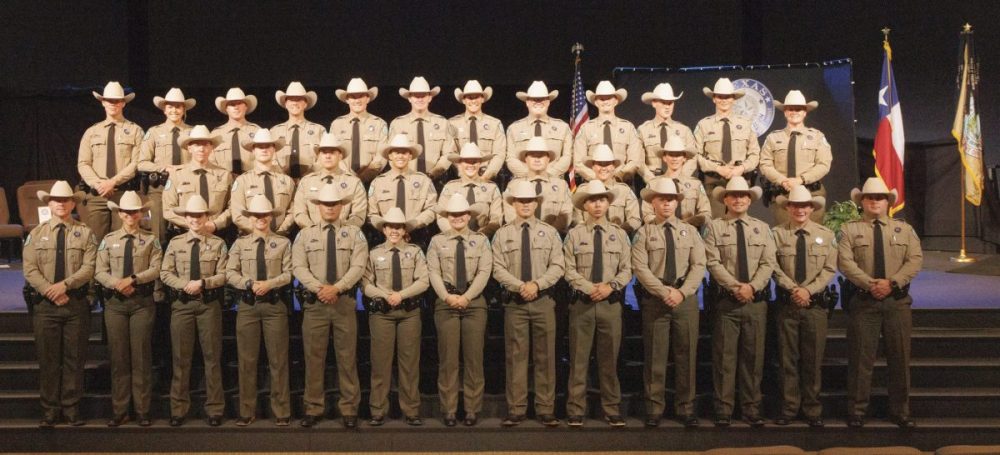
*Correction* Mahoney Homecoming is Planned for June 8th
June 3, 2025 – The Mahoney Homecoming will be held Sunday, June 8, 2025. Activities begin at 10:30am. not 11:00am. This event will be held at the Mahoney Church and Cemetery. The public is invited. Bring a lunch to share with your family and friends.
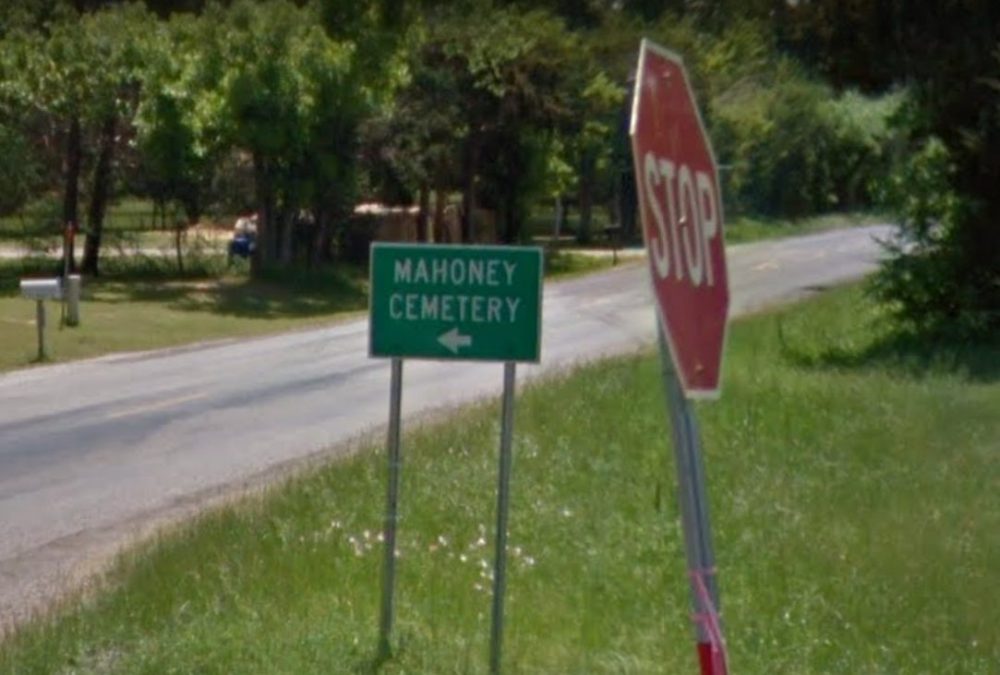
Brashear Cemetery Association to Hold Homecoming Meeting June 7th
June 2, 2025 – The Brashear Cemetery Association announces that the Annual Homecoming Meeting will be held Saturday, June 7, 2025. The meeting will start at 10:30am at the Brashear Baptist Church Family Life Center. The public is asked to bring their favorite covered dish and enjoy the Fellowship with friends and neighbors. If you can not attend, but wish to donate, donations may be mailed to the Brashear Cemetery Association, P. O. Box 72, Brashear, Texas, 75420.
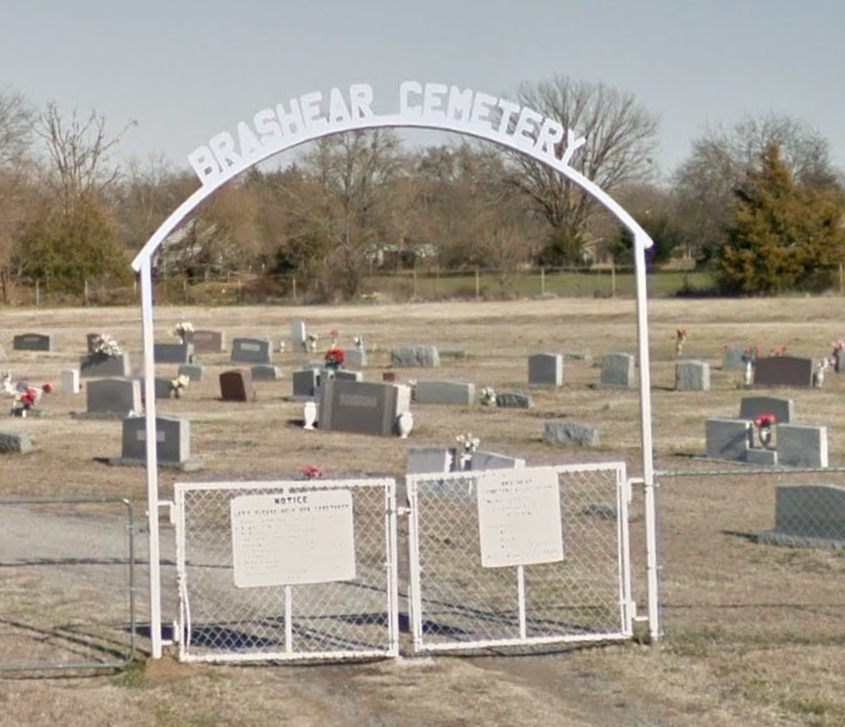
Emblem Memorial Day Service to be Held June 8th
June 2, 2025 – Emblem Memorial Day Service and cemetery meeting will be held at 11:00 AM Sunday, June 8th, 2025, at the Emblem Cemetery Chapel on FM highway 71. Following the service, there will be a covered dish lunch.
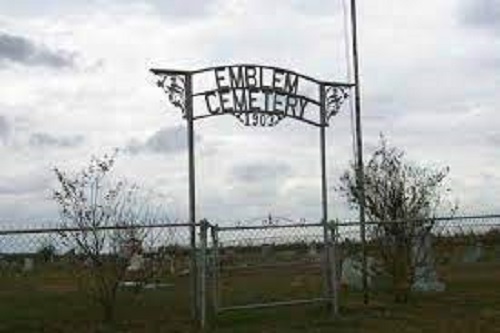
This and That for June 2025 From Master Gardener David Wall
June 2, 2025 – Growing cucumbers and tomatoes? Assuming you haven’t already done so, it’s not too late to plant sunflowers right next to them that will grow to 6-8’ tall (12-14’ tall sunflowers re a wee bit much!). Both have similar soil requirements, and your vegetable fruits results are sweeter. Also, the sunflowers are a great trap crop as many insects prefer the sunflower over the cucumber and tomato!
Plants can hear water gurgling through the soil and will turn some of its roots toward that source. Also, microbes in a symbiotic relationship with your plants can tell them where a water source is located.
The tag on a plant saying full sun is perhaps a wee bit exaggerated. It doesn’t mean put me in the harshest sun from dawn to dusk. Most full sun plants would welcome some afternoon shade during the afternoon heat. Six hours of sun should suffice.
All you need to make your own great liquid fertilizer is a 5-gallon bucket, compost, water and a stirring stick. Fill a 5-gallon bucket half-full of compost. Now fill the bucket to near the top with water. As you water, stir the mixture and water with a stick to begin the process of water absorbing nutrients. If you’re using treated water, pour a bucketful of water and let it sit for a week to let unwanted chemicals in the water leach out. After a week of stirring, pour the mixture through a filter of some type into another bucket, which can now be used to fertilize plants. Gou can use it very 7-10 days.
If you’ve ever wondered, mulch can attract termites, but so what? They aid decomposition in the garden, but don’t allow if your garden is close to the house!
Finally, peat moss is acidic but won’t acidify your soil.
